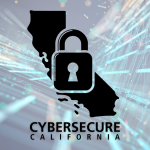Navigating the complexities of data privacy regulations is a critical task for organizations in California. With laws like the California Consumer Privacy Act (CCPA) setting stringent standards, compliance is not just about legal adherence but also about building trust with customers and stakeholders. This checklist provides a comprehensive guide for California businesses and government organizations to ensure they meet data privacy requirements.
Understanding Data Privacy Regulations
The CCPA and Beyond
The CCPA is a landmark law in California that sets a high bar for data privacy. However, organizations must also be aware of other relevant federal and state regulations that govern data privacy and protection.
Data Privacy Compliance Checklist
1. Know Your Data
Identify the types of personal data your organization collects, stores, and processes.
Understand the sources of data and the purpose for its collection.
2. Consumer Rights Compliance
Ensure systems are in place to respond to consumer requests for data access, deletion, and opt-out of data selling.
Train staff on handling such requests efficiently and within the stipulated timeframe.
3. Data Processing and Security
Implement and maintain robust security measures to protect personal data.
Regularly review and update security practices to address new threats.
4. Vendor Management
Assess third-party vendors’ compliance with data privacy laws.
Ensure contracts with vendors include terms that comply with data privacy regulations.
5. Privacy Policy Updates
Regularly update privacy policies to reflect current data practices and legal requirements.
Clearly communicate any changes in the privacy policy to users and stakeholders.
6. Employee Training and Awareness
Conduct regular training sessions for employees on data privacy laws, regulations, and best practices.
Foster a culture of privacy awareness within the organization.
7. Documentation and Record-Keeping
Maintain detailed records of data processing activities, consent forms, and consumer requests.
Document compliance efforts and security breach responses.
8. Regular Audits and Assessments
Conduct periodic audits to ensure ongoing compliance with data privacy laws.
Assess and address any gaps or weaknesses in privacy practices.
9. Breach Response and Notification Plan
Develop a data breach response plan outlining steps to take when a breach occurs.
Understand the legal requirements for breach notification and adhere to them strictly.
Staying compliant with data privacy acts like the CCPA is essential for organizations operating in California. This checklist serves as a starting point for ensuring comprehensive compliance, but organizations should continually adapt their practices to keep up with evolving regulations and emerging challenges in data privacy.

